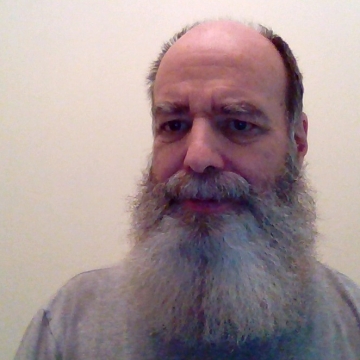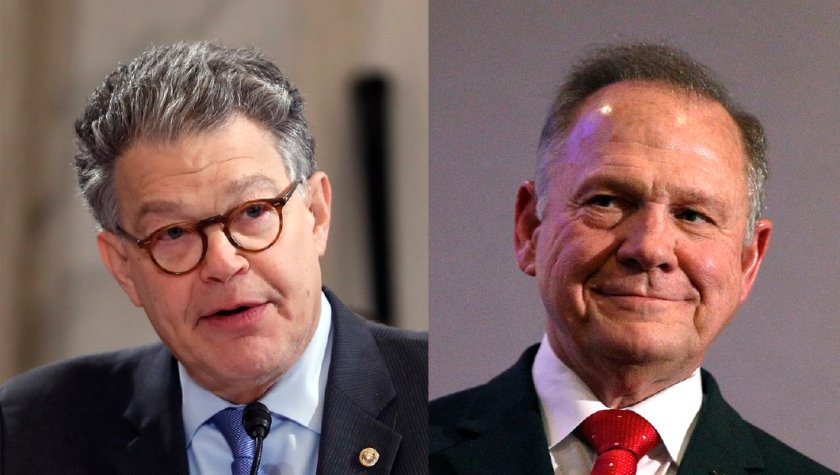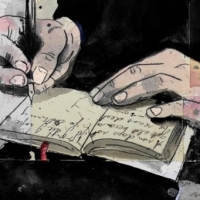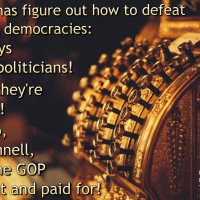Now that both heats of the first Democratic presidential primary debate have finished, and both have been thoroughly analyzed, we can turn our attention to the most salient question of all, who won?
As I pointed out last post, it is an extremely complex issue to sort out when you have 20 master debaters all going at it in a big semi-circle divided over two nights. There’s a lot of moving parts there.
The Factors Influencing Perception
While this is, what, my fifth post on the topic, I’ll briefly go over the salient psychological factors that influence our perceptions of the “winner.”
- The easier question heuristic: When faced with a difficult question that will require a lot of thought and effort to answer if it is even answerable at all, we tend to unconsciously find a similar, but easier question to answer. More than likely, it will also be one we’ve answered before. That’s called the easier question heuristic. We use it all of the time.
- Fundamental attribution theory: When we see other people doing stuff, we try to figure out why. It follows predictable patterns for most of us.
- The halo effect: If we like someone, especially if we don’t know much about them, we tend to assume that they do everything well, especially concerning the things we think are important. In short, we give them the benefit of the doubt.
- Social status conferral: When we interact directly with people or watch them interact, we begin to assign them social status based on our impressions of them. Who gets higher and lower status conferred upon them is very dependent on gender roles and social norms.
- The peak-end rule: After we’ve had an experience, when we think back upon it, two factors have the most influence on how we feel about it. They are the most emotionally intense moments (the peak) and how we felt at the end of the experience.
All of these factors will influence who you feel won the debate. And, it will differ from person to person and be influenced by the opinions of others. So, real quick, before we go any further, answer the question I’ve listed below. Don’t think about it. Don’t cipher it. Don’t do anything but respond with the first person you think of. If you wanna, you could put your answer right now in the comments. It could be fun.
Who Won?
More than likely, even if you don’t know who won, you probably have a gut feeling, an opinion, an intuition. The more you think about a choice like this, the more you’ll muck it up. That’s a robust psychological finding. If you ask two sets of people to choose something from a set of choices: cars, houses, posters, scraps of paper, used paper clips, It doesn’t matter, you’ll find a trend. If you had half of them make the choice and write down all the reasons they chose it, and the other half to just make the choice without reflecting on it, who do you think will be happier with their choice in six months? If you said the people who just chose without reflection, you’d be right. We fuck those opinion type things up when we think too much about them at least from the standpoint of whether or not we’re satisfied and happy with our choices.
I’m not going to tell you who won the debate. I’ll tell you things about each of the candidates and how I think their behavior and other factors caused people to react to them. Primarily, I’m not concerned with a winner. I am, however, concerned with these three questions:
- Who helped themselves, meaning who made it more likely that they’d win the nomination or be around for the third debate?
- Who hurt themselves, meaning who made it less likely that they’ll win the nomination or be around for the third debate?
- And, who should just stop their campaign right now. I guess, I lied. My primary concern is for those who should just shut up and go home.
The Peak-End Rule
Now that the debates are over, other than our unconscious assessment of how presidential the candidates seem, the peak-end rule is probably the most salient in determining the overall “winner” or the person or people who helped themselves the most.
The Peak
Emotional events make for strong memories. It is a truism that has been verified numerous times. When an intensely emotional event happens in our lives, what do we do? We talk about it a lot, and we think about it a lot. In short, we rehearse the memory. Rehearsal of memories helps them become a stronger more easily accessed memory. It is as simple as that.
Think back over the two debates. What are the most emotionally intense moments of the debates?
- Harris’ take down of Biden.
- Buttigieg’s contrition over his inability to have his Harvard dazzling magic solve his black-people problem.
- Warren’s insistence that treating gun violence as a public health crisis is the way to solve the gun violence problem in America in the face of Chuck “I put the ASS in asinine” Todd’s clumsy attempt to tag her as a dirty gun-grabber.
- Castro’s insistence that O’Rourke hadn’t done his homework.
- Klobuchar’s there are three women up here who have fought for reproductive rights.
- Harris’ food-fight food on the table moment.
- Castro’s adios Trump.
- Swalwell’s pass the torch barb of Biden. Confusion and chaos of multiple candidates talking over each other.
- Harris’ the microphone held in the president’s hands.
- Booker on gun violence.
Which one of those are the most emotionally intense? Harris’ busing and racism comments about Biden. That one, hands down, dominates everyone’s memory of the debates. Everything else pales. And, the more time that passes, the more dominate this impression will be.
The End
Recent events and the events at the beginning are most easily recalled. The details occurring in the middle are most easily forgotten. When taken together it is known as the serial position effect. All things being equal, the most recent events have the most influence on our impressions.
Think Blasey-Ford and Kavanaugh hearings. Blasey-Ford knocked it out of the park. Everyone thought that Kavanaugh was done, but then he got to spew his beer-soaked vehemence on us. And, white male privilege carried the day. Same thing with these debates. We all felt warm and fuzzy and hopeful after the first debate, but now that the second one is done, the first is over-shadowed.
Who Won?
Who helped themselves become more likely to be the nominee or at least show up in the third debate? From the first debate, Castro and Warren. From the second debate, Harris and maybe Buttigieg.
Who hurt themselves? Biden and O’Rourke. Castro laid a big injury on O’Rourke. He showed him to be unprepared. He showed him to be pandering to the basest emotions on immigration without actually addressing the problem, knowing the issues, and knowing the law. Harris showed Biden to be out of touch with the Obama coalition. In the 2020 election, you can’t be so tone deaf on race in spite of a record of championing civil rights.
Warren and Castro helped themselves the most in the first debate, but it is Harris who will benefit the most overall. Peak-end rule. She had the peak of emotional intensity, and we were feeling pretty good about the prospect of watching her do the same to the Ol’ Pussy Grabber.
Categories: Politics






















While I agree with your assessment and conclusions, one thing that remains with me is Harris’s prosecutorial finger-pointing. The finger-jabbing that is part and parcel of prosecutorial style, and something which she’s obviously quite practiced in, doesn’t usually go over well outside the courtroom or the halls of congress. Males in particular quite loathe having anyone shaking their finger at them, and more so when it’s being done by a woman. Many women feel similarly. Picture sitting In a parochial school and having Sister Celestine scolding and pointing at you with one finger and swinging her ruler in the other hand. I just don’t know how that will play out in the long run for Harris. What the exchange most revealed was how deeply unprepared Biden was. Why did his campaign staff not better prepare him? And why after so many years in congress was Biden not anticipating such a question or more? My other takeaways from both nights revealed to me the strongest contenders in the race: Warren, Harris, Castro, Mayor Pete, Booker, Insley and Bennet. And I won’t rule out Biden being able to come back from this first debate. The election is a long way out. There’s a lot of time for any number of possible situations and outcomes.
LikeLiked by 1 person
Howdy Susan!
That is a great observation about Harris. She does come off as a bit of a scold. Luckily, it is something that she could learn to temper.
As far as Biden goes, I was deeply skeptical of his candidacy and hoping he wouldn’t run. He’s run three times before, 1984, 1988, and 2008 and flamed out every time without ever having accomplished much. A lot of it is because of his lack of preparedness. Plagiarizing most of a speech? He shoulda been more prepared could be on his tombstone.
Your list of strong contenders is interesting. I agree with it mostly. As the debate wore on, I thought Bennett got better. I find his voice really irritating, though. It’s kind of a nasal complaining angry whine to me. Inslee didn’t impress as much. He seems to me like he felt like he was entitled to front-runner status and is resentful that it wasn’t just handed to him. I’m open to being wrong on both. What did you see in them?
Huzzah!
Jack
LikeLike
Reblogged this on cabbagesandkings524 and commented:
Calico Jack – Did anybody win?
LikeLiked by 1 person
Harris has a magic power, the ability to be angry, justly so, as a woman without being seen as “too emotional” or some of the other tropes put on angry women. She is the lawyer with the devastating closing argument, gender be damned.
Warren gets to a similar place with earnestness, unassailable preparation, and values that might be described as those of the “good mother”.
Booker has mastered the art of speaking from his personal experience to illustrate larger issues in a way that comes through as authentic and thoughtful. And, he is tall and not too dark (someone who wants to like him can almost overlook his race if that is a issue for them.)
Castro has done all his homework, doesn’t get too excited, and his take down of O’Rourke was not mean, but just let the man expose his own weakness (as Harris did to Biden). The problem is his face. He looks very “not white”.
The good thing at this point is that even the pundits can’t say who won, can’t dismiss all but one. The longer they stay confused and keep thinking in terms of relative advantage, strengths and weakness, the better.
LikeLiked by 1 person
Howdy Bob!
It’s like any other overcrowded market.There will eventually be a shake out and the weaker companies will fall out. Right now, in the market place of ideas to use a cliche, we need a broad vigorous debate. We need our single candidate to be an amalgamation of the ideas of the many. All of the agreeing, especially on night one, was nice to watch. No one was rejecting any argument or position too harshly. All of the policies and positions were available to be adopted by the eventual nominee.
I see Booker, Castro, Buttigieg as being great VP material. None of them will alienate a constituency. Gillibrand would be good for a male candidate who needed that #MeToo box ticked. Klobuchar if you needed the mid-west appeal. I guess that’s the good news, the eventual nominee will have a fairly well vetted large pool of possible VP candidates to choose from.
Huzzah!
Jack
PS It also helps Booker to have shaved his head. The lack of a visible ‘fro helps his appeal, same with Harris’ straight hair.
LikeLiked by 1 person